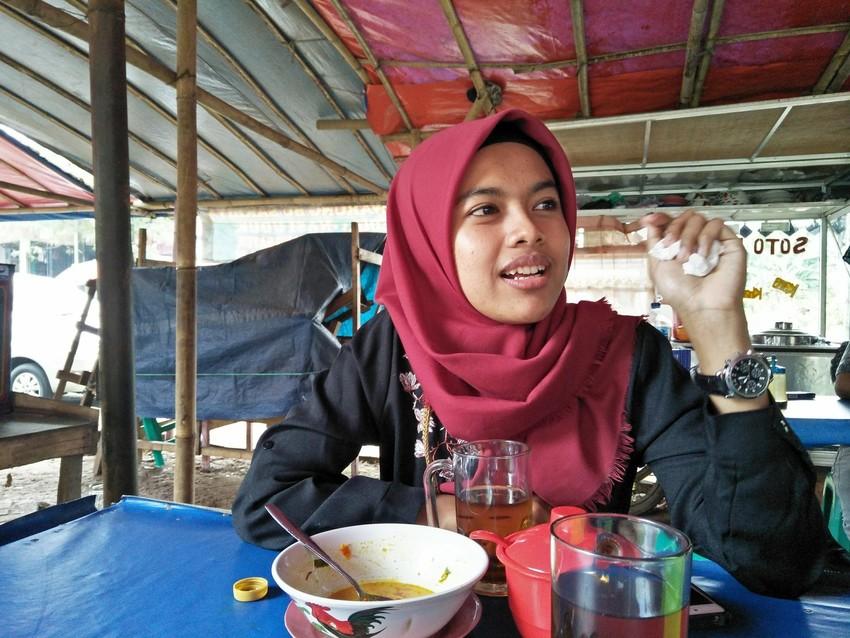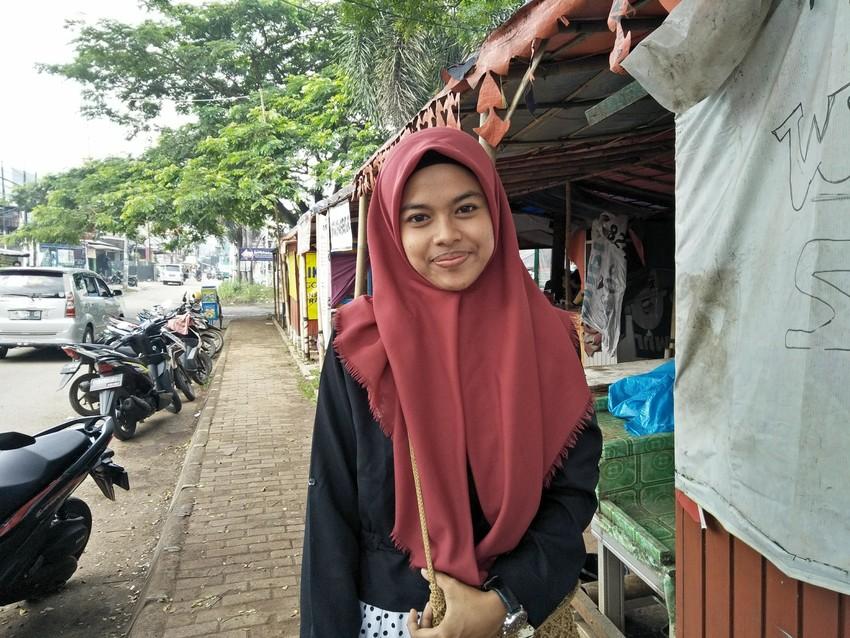What the gender equality gap looks like for girls in Indonesia
20 November 2019
•By Joe


“Since I was a kid, my parents have taught me to be independent and, above all, to trust in God and education,” says Iin, 22, a college student in Indonesia . Her family’s early support of her dreams, she says, is what laid the foundation for her outspoken stance on global gender equality issues.
The aspiring journalist has worked hard for years for extra income to supplement her own education, tutoring younger students and making handicrafts in her spare time. She’s also a blogger and is active on the community development program on her campus. Yet in spite of her success so far, she never thought seriously about global gender equality issues, including gender inequality in the workforce. Until a ChildFund workshop changed her perspective, she thought of women – including herself – as being naturally less qualified for certain jobs, naturally subordinate to men in matters outside the home.
Promoting gender equality in Indonesia
For years, ChildFund Indonesia has run a program aimed at giving youth marketable skills to combat high rates of unemployment. One aspect of the project that gets less airtime is a gender equality training component. Gender training is exactly what it sounds like: a workshop designed to build young people’s awareness of gender issues in education, gender inequality in the workforce and more.
For many young people in Indonesia, the idea that gender roles are created and reinforced by society (rather than just biology) is a new, if welcome, message. More and more often, girls are pursuing higher education – but they still tend to abandon their career ambitions when they marry. More and more boys are growing up looking forward to participating fully in domestic life, but they feel intense social pressure to leave tasks like cooking, cleaning and caring for children exclusively to women.
Gender equality issues in education and legislative decision-making persist, and gender inequality in the workforce is rampant. The deeply rooted patriarchal culture in Indonesia dictates that women stay at home or work informally. Even when women do hold formal jobs, they are frequently the targets of sexual harassment and exploitation. One 2017 survey revealed that more than half of female garment labourers in a Jakarta industrial complex were sexually harassed .
But, as Iin learned in the gender training, women’s participation in the economy is crucial to any country’s development.
‘Women have equal rights’: Iin’s changing perceptions of gender
Through the training, she learned that women are equally equipped to engage in education, the workforce and society more broadly. In fact, it is social norms – not biology – that often limit both women and men.


Iin was amazed to learn about married women who work. Before, she had assumed that marriage meant the end of a woman’s career. At least, that’s how it usually is in her community. There is an entrenched perception, she says, that it is wrong for women to hold active careers outside the home – that such women ruin their families.
“The training has taught me that women have equal rights to work,” she says. “If society denies women the right to work, they are violating women’s rights, stopping women from exploring opportunities and expressing themselves.”
On the flip side, she learned that making money shouldn’t be a man’s only job.
“I want society to understand that taking care of the children is not a role only for women, but that the father needs to participate too, and not always just as breadwinner,” she says. “A husband needs to know about his children’s development as well.
“Childbirth and breastfeeding are two things men can’t do. But men can support women on the rest.”
Promoting gender equality isn’t just for girls
Gender training is part of the curriculum for everyone who participates in the youth skills project – and that includes boys.
Riadi, 21, a young man who participated, says he has always treated his friends of both sexes the same.
The idea that women exist only to be wives and mothers is "so old-fashioned," he says.
"For me, gender equality is not a new idea, although this was my first time to have gender training. I was surprised that … many people have no idea about gender equality, and that there are so many gender biases around."
As members of a more open-minded generation, both youth feel responsible for combating global gender issues.
"I want to change community perceptions about gender," Iin says.
Since the training, promoting gender equality in Indonesia has taken on a new importance in her life.
“I know it will be hard, since the community’s stereotype is that women should stay at home and focus on domestic matters like cleaning and cooking. But that is all wrong," she says
Riadi agrees: "All women and men should have equal rights and opportunities in their communities," he says, "especially in education, careers, politics and social life."
How you can support gender equality
Every woman and child has the right to equal access to the highest attainable standard of healthcare. Currently women and children in some countries cannot access this right.
You can make a difference by donating to ChildFund Australia’s Maternal and Child Health Appeal today. Your donation can help to provide clean birthing kits to women, medical supplies to mothers and babies, and community outreach clinic support.
